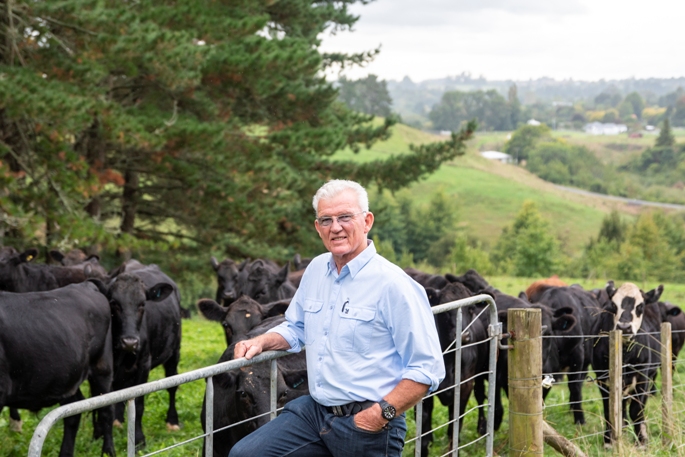After clocking up nearly five decades of service to the beef and lamb industry, AgFirst Farm Consultant, Bob Thomson is a well-deserving finalist in the Significant Sector Contribution category of the 2022 Beef + Lamb awards.
Raised on a Northland mixed dairy and beef farm, Bob always intended to farm himself, and completed his Diploma of Agriculture in 1969. His short farming career led him into some interesting projects.
In the early 1970’s Bob was managing a property where dairy-beef cattle of different breeds were reared and finished in a Ruakura trial run by Dr Graeme Everitt. The same property also reared and finished Friesian bulls, when bulls were just starting to be farmed in New Zealand.
In 1975 the Ministry of Agriculture and Fisheries - MAF, (now the Ministry for Primary Industries - MPI) advertised for extension officers. Bob joined MAF in Hastings and his role was to understand the research and get it out to the farmers. He was also able to undertake further training at Massey.
“New Zealand was investing heavily into agricultural research during the 1960s and 1970s and I was privileged to be part of that.”
Golden era of research and development
He reflects with pride on that era and some of the many research projects that have shaped how we farm today.
“For example, our scientists found solutions to facial eczema in sheep, managing it with zinc, and breeding for tolerance with rams from sire lines that were less prone to eczema.
“They also quantified the effects of trace elements on animal performance and discovered that it was mostly minor, and that nutrition was of the most importance.
“We started breeding animals for performance and the environment they would be living in, and performance national recording programs were introduced like Sheeplan and Beefplan.”
Bob also spent time encouraging farmers to implement rotational grazing of stock as it was realised that good subdivision, good stock policy and good soil fertility were foundational to good farm production and profit.
The end of the era
In 1985, all farming subsidies, along with agricultural research and development was progressively stripped out of New Zealand, by finance minister, Roger Douglas. Good farmers lost farms, and some even lost their lives as their dreams of farming on their own account were extinguished.
“I was one of the first to leave MAF and become a private farm consultant, specialising in sheep and beef.
“Instead of working with groups of farmers paid for by MAF, I found myself working one on one with farmers who were open to change and sharing their farming methods.”
Bob teamed up with a former MAF colleague Colin Page and together they worked up until 1997 when Bob established the NZ Beef Improvement Group (BIG). BIG was purchased by Richmond in 1998 and Bob found himself moving to Hastings.
BIG was all about value-based payment on beef quality and Richmond saw that program as foundational to its new brand strategy. Records show that Richmond was subject to a hostile takeover by PPCS and as they say, the rest is history.
Bob enjoyed his four years at Richmond and greatly laments the loss of Richmond and the brand strategy that they had embarked on.
On return to Northland Bob established AgFirst Northland in 2005. He moved to the Waikato in 2015, where he contracts back to AgFirst Waikato and as one of the top New Zealand beef specialists, gets to talk with farmers all over the country.
Consulting career
Bob has had a huge influence on the country’s beef industry. He was instrumental in establishing the first Beef Council, the New Zealand Beef Improvement Group, the Landcorp Beef Cow for Profit Programme and advocating for the game-changing Beef + Lamb Genetics Dairy Beef Progeny Test.
If there is one thing Bob would like to devote the rest of his life to, it would be supporting a successful transition from killing two million bobby calves, to rearing and finishing them profitably by 2030.
“Genetics will play a huge part in turning unproductive bobby calves into profitable finishing cattle. But we need to realise that one-winter all-pasture beef systems utilise one-third less land than two-winter systems.
“This means marketing lighter carcasses of young tender meat without mining the precious feed needed to get them through winter.”
As far as being a Beef + Lamb award finalist is concerned, Bob is “honoured and privileged to have been part of the team that has helped build and grow the New Zealand meat industry to what it is today”.
“Many people have forgotten how far New Zealand sheep and beef farming has come, how well our farmers have done in terms of their resilience and contribution to what is good and great about this country of ours. These are things that need to be remembered.”



0 Comments
Leave a Comment